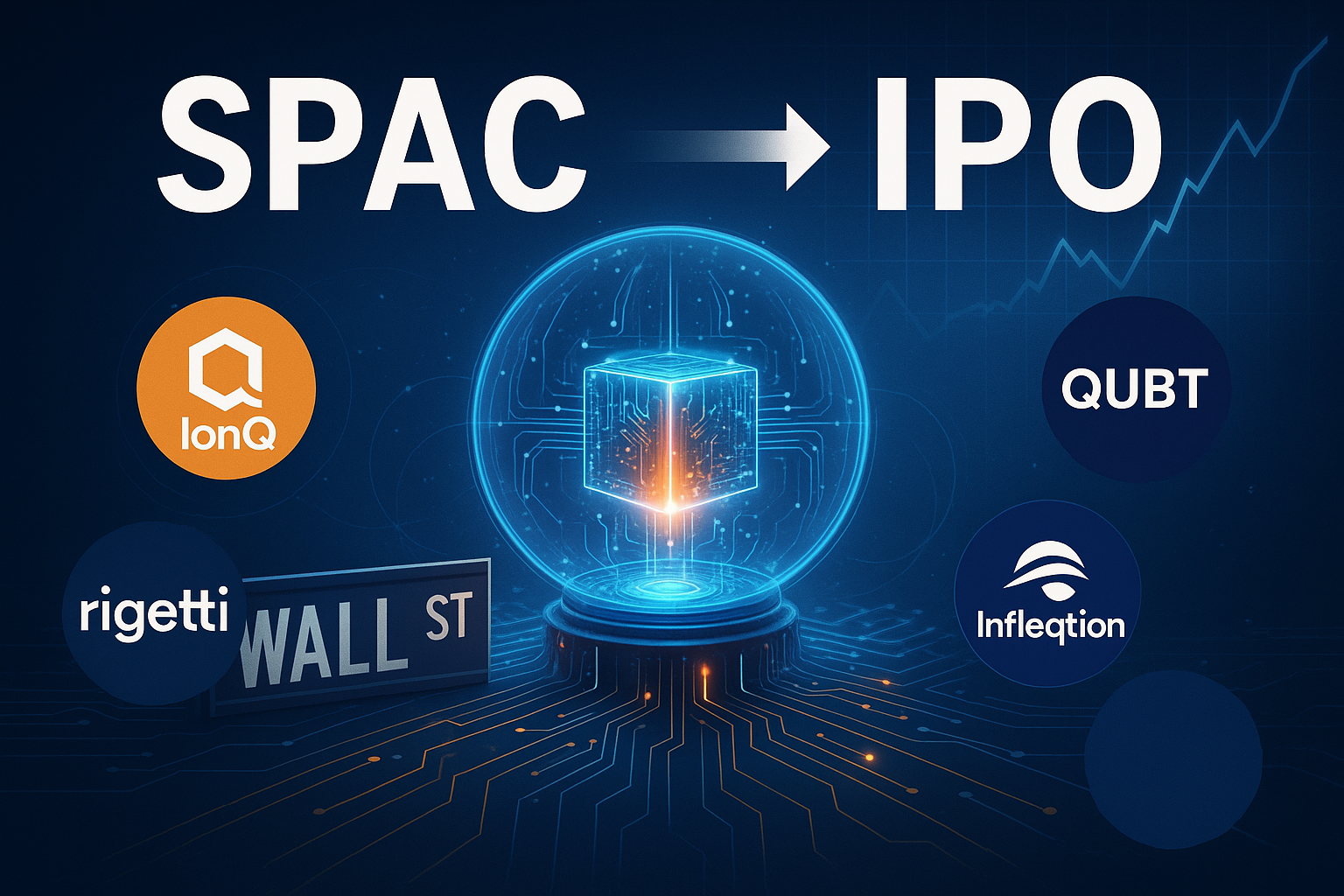
Quantum computing has long promised to revolutionize data science, but in 2025, that promise is starting to converge with something even more disruptive: artificial intelligence. When AI meets quantum computing, it unlocks unprecedented capabilities—from solving optimization problems in seconds to training machine learning models previously deemed impossible.
This intersection is no longer theoretical. It’s real, and public companies are making aggressive moves to capitalize. In this post, we explore six top stocks—from pure-play quantum firms to Big Tech giants—that are actively developing or enabling quantum-powered AI. These companies are positioned to thrive as quantum-AI integration moves from the lab to the enterprise.
1. IonQ (IONQ): A Pure-Play Quantum Leader in AI Exploration
As one of the few publicly traded quantum computing companies, IonQ is in a unique position. It develops trapped-ion quantum processors known for longer coherence times and higher fidelity—key for processing complex AI workloads. In 2025, IonQ has ramped up its partnerships with Fortune 500 clients and major cloud providers like Amazon Braket, Microsoft Azure, and Google Cloud.
IonQ is actively exploring quantum machine learning algorithms and optimization models that outperform classical counterparts. For investors seeking a pure play on the future of quantum AI, IonQ represents a first-mover advantage.
2. Alphabet (GOOGL): Quantum Supremacy Meets DeepMind AI
Alphabet’s AI innovation isn’t limited to large language models and search algorithms. Its Quantum AI division, responsible for the 2019 Sycamore processor that achieved “quantum supremacy,” is now applying quantum techniques to accelerate machine learning.
Meanwhile, Alphabet’s DeepMind—famous for breakthroughs like AlphaFold—is exploring quantum-enhanced reinforcement learning. With vast compute resources and a culture of bleeding-edge R&D, Alphabet is uniquely positioned to fuse AI with quantum architectures.
3. NVIDIA (NVDA): The Hardware Powerhouse Behind Hybrid Quantum-AI
NVIDIA is the backbone of many quantum efforts—not through building qubit systems, but by enabling quantum simulations. Its cuQuantum platform allows researchers to simulate quantum circuits on GPUs, dramatically accelerating experimentation in quantum algorithms and quantum-enhanced machine learning.
As AI models grow more complex and hybrid quantum-classical systems emerge, NVIDIA’s GPUs will remain the go-to processing units. The company’s involvement with quantum startups and academic collaborations makes it a stealth player in the quantum AI race.
4. Microsoft (MSFT): Building Quantum AI at Enterprise Scale
Microsoft’s Azure Quantum platform offers a quantum development environment for enterprises, including quantum-inspired optimization tools already being used in financial modeling, supply chain logistics, and AI training.
The company’s long-term commitment to building a topological qubit could eventually lead to breakthroughs in fault-tolerant quantum computation. In the meantime, Microsoft’s integration of Q# (quantum programming) with tools like Visual Studio and Python makes it easier for AI researchers to experiment with quantum-powered solutions.
5. Honeywell (HON) via Quantinuum: Merging Quantum with Cyber-AI
Honeywell’s majority stake in Quantinuum gives investors exposure to one of the most promising quantum startups globally. Quantinuum is actively developing AI-enhanced quantum encryption and quantum NLP (natural language processing) applications.
One of its flagship products, Quantum Origin, already uses quantum randomness to generate encryption keys that power secure AI systems. For investors seeking enterprise exposure to quantum-enhanced cybersecurity and AI modeling, Honeywell is a key player to watch.
6. Rigetti Computing (RGTI): Hybrid Quantum-AI for Applied Use Cases
Rigetti may not make headlines as often as its larger peers, but its focus on hybrid quantum-classical architectures is drawing attention in the AI world. Through its Quantum Cloud Services (QCS), developers can now integrate quantum functions into machine learning workflows.
While still pre-revenue in many aspects, Rigetti’s partnerships with U.S. government agencies and research institutions show that its technology is being taken seriously. For speculative investors, RGTI offers high-risk, high-reward potential in quantum AI integration.
Conclusion: Quantum AI Isn’t the Future—It’s Now
AI was the tech story of 2023–2024. Quantum computing is shaping up to be the defining tech story of the next decade. But together, quantum AI may rewrite the rules of what’s computationally possible.
Whether you’re looking for speculative quantum pure plays like IonQ or blue-chip exposure through Microsoft, Alphabet, or Honeywell, the key is to get in before the inflection point. As quantum hardware improves and quantum AI algorithms evolve, these companies are the ones poised to lead—and profit—from the next wave of computing.





Be the first to comment